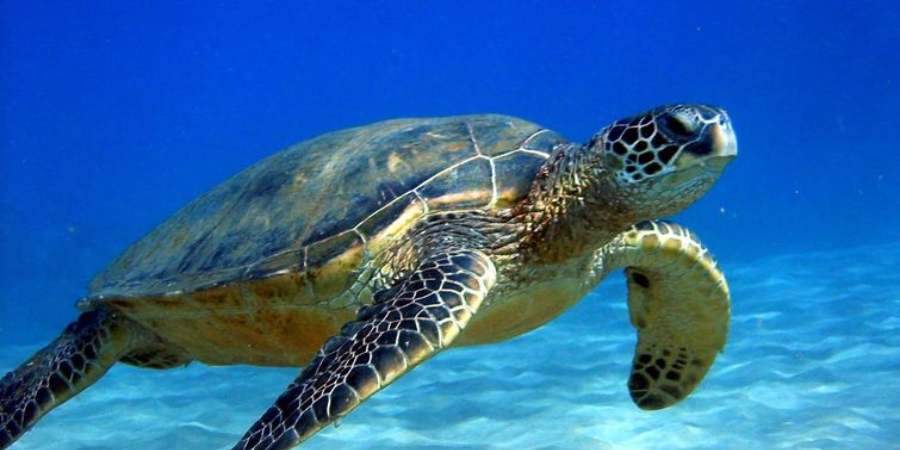

First of all,
Sea turtles are extinct animals that have existed since the era of dinosaurs. The oldest marine turtle's fossils are 120 million years old. A turtle is a type of reptile whose body is covered in a shell. It is well known that turtles move quite slowly.
Weight and Size:
For every species, men and females have the same size. The largest species of sea turtle is the leatherback, which may grow to a length of 9 to 9 feet and a width of 3 to 5 feet. It can weigh up to 1,500 pounds. The remaining six species of turtles are smaller; the majority measure between two and four feet in length and have a narrower width in comparison.
Visual appeal:
The broad, sleek shell and non-retractile head and limbs of sea turtles are their distinguishing features. Sea turtles are unable to pull their heads and limbs within their shells, unlike other types of turtles. They are vulnerable while they are on land since their limbs are flippers that are designed for swimming. A sea turtle's thick, bony shell shields it from damage and predators. The species determines the shell's size, shape, and colour. The carapace refers to the upper side of the shell, whereas the plastron refers to the lower side.
Turtle Lifespan:
A turtle's or tortoise's typical lifespan varies greatly depending on the species. While some species can survive up to 150 years in captivity, others can only live 10 to 20 years. If given the right care, the majority of turtle and tortoise species can survive well into their 50s.
Fish, seaweed, sponges, mollusks, worms, and seagrasses are among their food sources.
Sea turtles have two different places to sleep:
On the bottom, jammed between rocks in nearshore waters, or above the surface when in deep water. Green turtles have been observed by numerous divers napping beneath ledges on rocks and reefs. Hatchlings commonly sleep with their front flippers curled back over their backs while floating on the surface.
Breeding:
A sea turtle's sexual maturity takes 20 to 30 years to reach. Even if it has been 30 years since she last visited the nesting beach, a female returns there when she is ready to lay eggs. Up to the age of 80, some females continue to nest annually. Each species has a different breeding pattern. The female sea turtle can deposit more than 150 eggs at once whenever she returns to the beach to do so.
Threats:
Sea turtle populations have significantly decreased as a result of human activity throughout the past 200 years. Because sea turtles are sought after for their eggs, meat, skin, and shells, overexploitation and poaching pose a serious threat to these marine mammals.The hatching's chance of reaching the ocean safely is probably impacted by artificial lighting from neighbouring houses. The animals are also being harmed by human garbage, such as plastic, that ends up on beaches and in the ocean.
Advice to heed:
Promote ecotourism with marine turtles. Leave a turtle nest alone if you come across one. Federal and state laws protect nests, and damage to one can result in severe penalties or even jail time. Make use of reusable bags and dispose of waste responsibly. Make sure marine turtles have an even playing field when you depart the beach. Break down sandcastles, patch any gaps, and take out whatever you brought.
